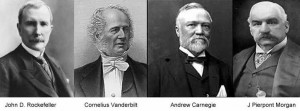 Having bit my tongue for several years about the state of our electorate, 2015 will be a time of writing about our politics and society in a process of working through ideas, to determine a path by which progressive ideas can gain more solvency in government.
Having bit my tongue for several years about the state of our electorate, 2015 will be a time of writing about our politics and society in a process of working through ideas, to determine a path by which progressive ideas can gain more solvency in government.
Meeting so many people since 2012—in politics, in retail sales, in farm work, and in writing—my understanding of how society works, and the attitudes of people who live in it has grown. Society is not what I thought—at all.
My formative years began when in 1959 I secured a card for the public library bookmobile that stopped near our house. I read biographies about people important to the growth of our culture. There were a lot of them, although the names I remember are the Ringling brothers, Thomas Edison and George Washington Carver. I gained an understanding that through personal industry, thrift and good ideas, a person could create things that mattered in society and made life better.
I wasn’t the only person who learned this as the ideas grew from the founders and persist. Matthew Josephson articulated this American idea in his 1934 book The Robber Barons.
In a brief cycle, the laissez-faire political philosophy of a Jefferson, having given free reign to self-interest, would stimulate the acquisitive appetites of the citizen above all. These, whetted by an incredibly rich soil, checked by no institutions or laws, would determine the pattern of American destiny. The idealism of Jefferson’s Declaration of Independence, and his Inaugural address of 1801, would be caricatured in the predatory liberty of the “Valley of Democracy” where, as Vernon Parrington has said, Americans democratic in professions, became “middle class in spirit and purpose;” where freedom came to mean “the natural right of every citizen to satisfy his acquisitive instinct by exploiting the natural resources in the measure of his shrewdness.”
With minimal modification, Josephson’s language could describe attitudes of an electorate that in the same year brought us U.S. Senator Joni Ernst and Representative Dave Loebsack. It elected State Senator Bob Dvorsky and State Representative Bobby Kaufmann. It is a spring which nurtures dichotomies: people worked long hours to elect President Obama while others fly the confederate flag; row croppers manage the land with chemicals while others restore it to prairie; consumers are more connected to the world, while seeking small enclaves to live their lives in isolation. The picture isn’t clear, but clarity is coming.
Josephson describes what so many people want to get to—satisfying our acquisitive instincts through exploitation of a world that hangs in a balance because of human activities since the dawn of the industrial revolution. This is a bankrupt idea in light of what we know about the interconnectedness of our lives, but it persists, driven by a social setting in which church, family and work play a pronounced role.
The rest of understanding will come. While beginning the new year I plan to spend more time in the garage, yard, garden and kitchen while continuing my work in sales, writing and other odd jobs assembled to sustain us financially. Hopefully that will be a sustainable framework for exploring these ideas.
There is everything to gain and nothing to lose as we sustain our lives in a turbulent world.
~ Paul Deaton is a freelance writer who has been posting at Blog for Iowa since 2009.


